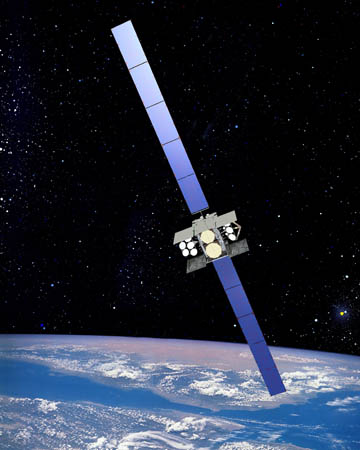The  United States has joined with five nations to form a nearly 20-year multilateral partnership for the Wideband Global Satellite Communications constellation. “This agreement builds upon a similar and hugely successful model established with Australia,” said Heidi Grant, USAF’s deputy undersecretary for international affairs, Tuesday during a briefing at the Canadian embassy in Washington, D.C. The memorandum of understanding between the United States, Canada, Denmark, Luxembourg, the Netherlands, and New Zealand went into effect on Jan. 12. The agreement supports procurement of the Air Force’s ninth WGS communications satellite, scheduled for launch 2017. It also provides the international partners with immediate access to the communications throughput of the three WGS satellites already on orbit, said Grant. Canada has agreed to invest $396.5 million in the WGS program. Denmark will provide $62 million, Luxembourg $49.6 million, the Netherlands $49.6, and New Zealand $62 million. Such space partnerships are exactly what the 2011 National Security Space Strategy calls for, noted Grant. The Air Force is set to launch the fourth WGS satellite into space later this week. Australia joined the WGS program in November 2007. (See also Wideband Satellite Family Gets Wider.)
United States has joined with five nations to form a nearly 20-year multilateral partnership for the Wideband Global Satellite Communications constellation. “This agreement builds upon a similar and hugely successful model established with Australia,” said Heidi Grant, USAF’s deputy undersecretary for international affairs, Tuesday during a briefing at the Canadian embassy in Washington, D.C. The memorandum of understanding between the United States, Canada, Denmark, Luxembourg, the Netherlands, and New Zealand went into effect on Jan. 12. The agreement supports procurement of the Air Force’s ninth WGS communications satellite, scheduled for launch 2017. It also provides the international partners with immediate access to the communications throughput of the three WGS satellites already on orbit, said Grant. Canada has agreed to invest $396.5 million in the WGS program. Denmark will provide $62 million, Luxembourg $49.6 million, the Netherlands $49.6, and New Zealand $62 million. Such space partnerships are exactly what the 2011 National Security Space Strategy calls for, noted Grant. The Air Force is set to launch the fourth WGS satellite into space later this week. Australia joined the WGS program in November 2007. (See also Wideband Satellite Family Gets Wider.)
Air Force Changes Rules for Pregnant Aircrew—Again
April 3, 2025
The Air Force is changing its policy for pregnant aircrew, generally reverting to rules set in 2019 that barred female aviators from flying during the first trimester—or from flying in aircraft with ejection seats at all—due to potential risks to the pilot and her unborn fetus.